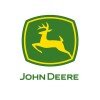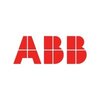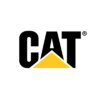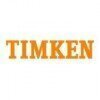
i
Cummins
Proud winner of ABECA 2025 - AmbitionBox Employee Choice Awards
Filter interviews by
Cummins Interview Questions and Answers
202 Interview questions
Supply chain encompasses the flow of goods, information, and finances from raw materials to end consumers.
Involves multiple stages: sourcing, production, distribution, and retail.
Example: A smartphone's supply chain includes raw material extraction, component manufacturing, assembly, and shipping.
Focuses on efficiency and cost-effectiveness to meet consumer demand.
Utilizes technology for tracking and managing inve...
Excel is a powerful spreadsheet application used for data analysis, visualization, and complex calculations.
Data Organization: Excel allows users to organize data in rows and columns for easy access.
Formulas and Functions: Users can perform calculations using built-in functions like SUM, AVERAGE, and VLOOKUP.
Data Visualization: Excel provides tools like charts and graphs to visualize data trends and patterns.
Pivot...
Basic electronic components include resistors, capacitors, inductors, diodes, and transistors, each serving unique functions.
Resistors: Limit current flow; example: 1kΩ resistor used in circuits.
Capacitors: Store and release electrical energy; example: 10μF capacitor in power supply circuits.
Inductors: Store energy in a magnetic field; example: used in filters and transformers.
Diodes: Allow current to flow in one ...
Electrical engineering focuses on power systems, while electronics engineering deals with circuits and devices that manipulate signals.
Electrical engineering primarily involves high voltage systems, such as power generation and transmission.
Electronics engineering focuses on low voltage systems, including circuit design and microcontrollers.
Examples of electrical engineering include transformers and electric motor...
DC motors convert electrical energy into mechanical energy, while DC generators convert mechanical energy into electrical energy.
DC Motor: Converts electrical energy into mechanical energy.
DC Generator: Converts mechanical energy into electrical energy.
DC Motors are used in electric vehicles; DC Generators are used in power plants.
DC Motors require a power source; DC Generators require a mechanical input (like a t...
A DoL starter is a device used to control the starting and stopping of electric motors safely.
DoL stands for Direct-on-Line, meaning the motor is connected directly to the power supply.
It is commonly used for small motors, typically up to 5-10 HP.
The DoL starter includes a contactor and overload relay for protection.
Example: A DoL starter is often used in fans, pumps, and compressors.
Basic electrical concepts include voltage, current, resistance, and power, essential for understanding electrical systems.
Voltage (V): The electrical potential difference, measured in volts. Example: A standard household outlet provides 120V.
Current (I): The flow of electric charge, measured in amperes (A). Example: A light bulb may draw 0.5A.
Resistance (R): The opposition to current flow, measured in ohms (Ω). Ex...
A motor converts electrical energy into mechanical energy through electromagnetic principles.
Electric current flows through the motor's windings, creating a magnetic field.
The interaction between the magnetic field and rotor induces motion.
Types of motors include AC motors (e.g., induction motors) and DC motors (e.g., brushed motors).
Speed and torque can be controlled by varying voltage or frequency.
Applications r...
With over 8 years in SAP, I can drive Cummins' technology upgrades through strategic analysis and process optimization.
Extensive experience in SAP modules like MM and SD, enabling me to identify areas for improvement.
Led a project that reduced order processing time by 30% through automation, which can be replicated at Cummins.
Strong analytical skills to assess current systems and recommend upgrades that align with...
The Mejar project is a new initiative aimed at improving efficiency and productivity in our manufacturing processes.
The Mejar project involves implementing new technologies such as automation and robotics to streamline production.
It also includes optimizing workflow and layout design to reduce waste and increase output.
The project team is conducting regular assessments and data analysis to track progress and ident...
Cummins Interview Experiences
252 interviews found
I appeared for an interview in Apr 2025, where I was asked the following questions.
- Q1. What is circuit and type of circuit ?
- Ans.
A circuit is a closed path through which electric current flows, with various types serving different functions.
Types of circuits include: Series Circuit - components connected end-to-end (e.g., string of holiday lights).
Parallel Circuit - components connected across common points (e.g., household electrical wiring).
Complex Circuit - combines series and parallel elements (e.g., in a computer motherboard).
Analog Circuit...
- Q2. Different between electrical and electronics ?
- Ans.
Electrical engineering focuses on power systems, while electronics engineering deals with circuits and devices that manipulate signals.
Electrical engineering primarily involves high voltage systems, such as power generation and transmission.
Electronics engineering focuses on low voltage systems, including circuit design and microcontrollers.
Examples of electrical engineering include transformers and electric motors.
Exa...
- Q3. Deatails of 5 Basic electronics components ?
- Ans.
Basic electronic components include resistors, capacitors, inductors, diodes, and transistors, each serving unique functions.
Resistors: Limit current flow; example: 1kΩ resistor used in circuits.
Capacitors: Store and release electrical energy; example: 10μF capacitor in power supply circuits.
Inductors: Store energy in a magnetic field; example: used in filters and transformers.
Diodes: Allow current to flow in one direc...
- Q4. Different between dc motor and generator?
- Ans.
DC motors convert electrical energy into mechanical energy, while DC generators convert mechanical energy into electrical energy.
DC Motor: Converts electrical energy into mechanical energy.
DC Generator: Converts mechanical energy into electrical energy.
DC Motors are used in electric vehicles; DC Generators are used in power plants.
DC Motors require a power source; DC Generators require a mechanical input (like a turbin...
- Q5. Full form CNC,CNG,CRT and LRD
I applied via Naukri.com and was interviewed in Jul 2024. There were 2 interview rounds.
(2 Questions)
- Q1. How calculate the weight of plates
- Ans.
The weight of plates can be calculated by multiplying the density of the material by the volume of the plate.
Determine the density of the material the plate is made of (e.g. steel has a density of 7850 kg/m^3)
Measure the dimensions of the plate (length, width, thickness)
Calculate the volume of the plate using the formula: volume = length x width x thickness
Multiply the volume by the density to get the weight of the pla...
- Q2. How many types of mechanical tools
- Ans.
There are various types of mechanical tools used in construction and maintenance work.
Hand tools (e.g. hammer, screwdriver, wrench)
Power tools (e.g. drill, saw, grinder)
Heavy equipment (e.g. excavator, bulldozer, crane)
Measuring tools (e.g. tape measure, level, calipers)
(2 Questions)
- Q1. How many types of Beam
- Ans.
There are mainly three types of beams: Simply supported beam, Cantilever beam, and Overhanging beam.
Simply supported beam is supported at both ends and carries load in the middle.
Cantilever beam is supported at one end and carries load at the other end.
Overhanging beam has one or both ends extending beyond its supports.
- Q2. How many types of Flanges
- Ans.
There are several types of flanges used in piping systems for connecting pipes, valves, and other equipment.
Weld Neck Flange
Slip On Flange
Socket Weld Flange
Threaded Flange
Blind Flange
Lap Joint Flange
Orifice Flange
I applied via Company Website and was interviewed in Sep 2024. There was 1 interview round.
(2 Questions)
- Q1. To operate the generator
- Q2. Look for a short circuit!
- Ans.
To look for a short circuit, check for any abnormal connections or damaged wires causing a direct path for current flow.
Inspect all wiring and connections for signs of damage or wear
Use a multimeter to test for continuity and resistance in the circuit
Look for any burnt or melted components indicating a short circuit
Check for any loose connections or exposed wires that could be causing a short circuit
Interview Preparation Tips
(4 Questions)
- Q1. What is the casting solidification time?
- Ans.
Casting solidification time is the duration it takes for molten metal to solidify in a casting process.
Casting solidification time depends on factors like material type, mold temperature, and casting geometry.
Higher pouring temperatures generally result in shorter solidification times.
Thicker sections of the casting will take longer to solidify compared to thinner sections.
Aluminum alloys typically have shorter solidif...
- Q2. How you decide the parting line?
- Ans.
The parting line is determined by considering functionality, aesthetics, and manufacturability of the part.
Assess the geometry of the part to identify natural split lines.
Consider draft angles to facilitate easy removal from the mold.
Evaluate the flow of material to minimize defects and ensure uniform filling.
Example: For a cylindrical part, the parting line may be along the axis to simplify mold design.
Ensure that the...
- Q3. What are the Casting design consideration?
- Ans.
Casting design considerations include material selection, part geometry, draft angles, surface finish, and shrinkage.
Material selection is crucial for the desired properties and performance of the final part.
Part geometry should be designed to minimize stress concentrations and ensure proper flow of molten metal.
Draft angles are necessary for easy removal of the part from the mold.
Surface finish requirements should be ...
- Q4. Current and previous work experience.
- Ans.
I have diverse experience in mechanical design, product development, and project management across various industries.
Worked as a Design Engineer at XYZ Corp, focusing on CAD modeling and simulation for automotive components.
Led a team in developing a new product line that increased market share by 15%.
Collaborated with cross-functional teams to ensure designs met manufacturing and safety standards.
Utilized tools like ...
CAD test-Housing model
(1 Question)
- Q1. About your self
Interview Preparation Tips
I appeared for an interview in Apr 2025, where I was asked the following questions.
- Q1. What is thermodynamics
- Ans.
Thermodynamics is the study of energy, heat, and work, and how they interact in physical systems.
Thermodynamics has four laws: Zeroth, First, Second, and Third Laws.
The First Law states that energy cannot be created or destroyed, only transformed (e.g., a car engine converting fuel into motion).
The Second Law introduces the concept of entropy, indicating that energy systems tend to move towards disorder (e.g., heat flo...
- Q2. Type of gear
- Ans.
Gears are mechanical components that transmit motion and torque between machines, crucial for various applications.
Types of gears include spur gears, bevel gears, and worm gears.
Spur gears are used in simple machines like clocks and conveyor belts.
Bevel gears are used in applications requiring a change in axis, like in car differentials.
Worm gears provide high torque and are used in elevators and tuning instruments.
- Q3. 4 stock and 2 stock defferent
Interview Preparation Tips
I applied via Campus Placement
(2 Questions)
- Q1. Motor working principle and how started
- Ans.
Motor converts electrical energy into mechanical energy. It starts by applying a voltage to the motor windings.
Motor converts electrical energy into mechanical energy
Motor starts by applying a voltage to the motor windings
Motor working principle involves the interaction between magnetic fields and current flow
Different types of motors include DC motors, AC motors, and stepper motors
- Q2. Pneumatic symbol and working principle
- Ans.
Pneumatic symbols represent components used in pneumatic systems, with arrows indicating the direction of air flow.
Pneumatic symbols are used to represent components like valves, cylinders, and pumps in pneumatic systems.
Arrows in the symbols indicate the direction of air flow through the component.
Common symbols include a circle for a valve, a rectangle for a cylinder, and a triangle for a pump.
Understanding these sym...
(2 Questions)
- Q1. Transformer about explanation and primary and secondary winding
- Q2. AC and DC About explain
- Ans.
AC (Alternating Current) and DC (Direct Current) are two types of electrical current used in various applications.
AC changes direction periodically, while DC flows in one direction.
AC is commonly used in household power supplies (e.g., wall outlets).
DC is used in batteries and electronic devices (e.g., smartphones).
AC can be easily transformed to different voltages, making it efficient for long-distance transmission.
DC...
Interview Preparation Tips
I applied via Company Website and was interviewed in Aug 2024. There was 1 interview round.
(2 Questions)
- Q1. Transformers. And transmission and distribution au
- Q2. Power plant and transmission
Interview Preparation Tips
(2 Questions)
- Q1. Question on exhaust manifold loadings
- Q2. Question on fuel filter vibrations
Interview Preparation Tips
I appeared for an interview in Mar 2025, where I was asked the following questions.
- Q1. Market capture good relationship
- Q2. Market level questions
- Q3. Customer level questions
- Q4. Business level question
- Q5. 17 year market capture
Interview Preparation Tips
I appeared for an interview in Mar 2025, where I was asked the following questions.
- Q1. What is turbocharger
- Ans.
A turbocharger is a device that increases an engine's efficiency and power by forcing extra air into the combustion chamber.
Increased Power Output: Turbochargers can significantly boost an engine's horsepower by allowing more air and fuel to enter the combustion chamber.
Improved Fuel Efficiency: By recovering exhaust gases to spin the turbine, turbochargers can enhance fuel efficiency compared to naturally aspirated en...
- Q2. Type of parts diesal engine
- Ans.
Diesel engines consist of various parts that work together to convert fuel into mechanical energy efficiently.
Cylinder Block: The main structure housing the cylinders, where combustion occurs.
Pistons: Move up and down within the cylinders, converting combustion energy into mechanical energy.
Crankshaft: Converts the linear motion of the pistons into rotational motion to drive the vehicle.
Fuel Injector: Delivers precise ...
- Q3. Maintanence check for DG set
- Ans.
Regular maintenance checks for DG sets ensure reliability, efficiency, and longevity of the equipment.
Oil Level Check: Ensure the oil level is within the recommended range to prevent engine wear and overheating.
Fuel System Inspection: Check for leaks and ensure fuel filters are clean to maintain optimal fuel flow.
Battery Condition: Inspect battery terminals for corrosion and ensure the battery is charged to avoid start...
- Q4. Fuel pump & governor
- Q5. Engin firing order
Top trending discussions






Cummins Interview FAQs
Some of the top questions asked at the Cummins interview -
The duration of Cummins interview process can vary, but typically it takes about less than 2 weeks to complete.
Tell us how to improve this page.
Cummins Interviews By Designations
- Cummins Diploma Trainee Engineer Interview Questions
- Cummins Intern Interview Questions
- Cummins Junior Shop Manager Interview Questions
- Cummins Quality Engineer Interview Questions
- Cummins Junior Manager Interview Questions
- Cummins Service Engineer Interview Questions
- Cummins Product Design Engineer Interview Questions
- Cummins Design Engineer Interview Questions
- Show more
Interview Questions for Popular Designations
- Diploma Trainee Engineer Interview Questions
- Intern Interview Questions
- Junior Manager Interview Questions
- Junior Shop Manager Interview Questions
- Quality Engineer Interview Questions
- Service Engineer Interview Questions
- Product Design Engineer Interview Questions
- Design Engineer Interview Questions
- Show more
Overall Interview Experience Rating
based on 235 interview experiences
Difficulty level
Duration
Interview Questions from Similar Companies
Cummins Reviews and Ratings
based on 3.5k reviews
Rating in categories
|
Junior Shop Manager
1.4k
salaries
| ₹3.6 L/yr - ₹9.6 L/yr |
|
Junior Manager
905
salaries
| ₹5 L/yr - ₹11 L/yr |
|
Diploma Trainee Engineer
462
salaries
| ₹1.5 L/yr - ₹3 L/yr |
|
Design Engineer
343
salaries
| ₹2.5 L/yr - ₹7.5 L/yr |
|
Service Engineer
273
salaries
| ₹2.4 L/yr - ₹7.3 L/yr |

John Deere

ABB

CNH ( Case New Holland)

Caterpillar Inc
- Home >
- Interviews >
- Cummins Interview Questions












